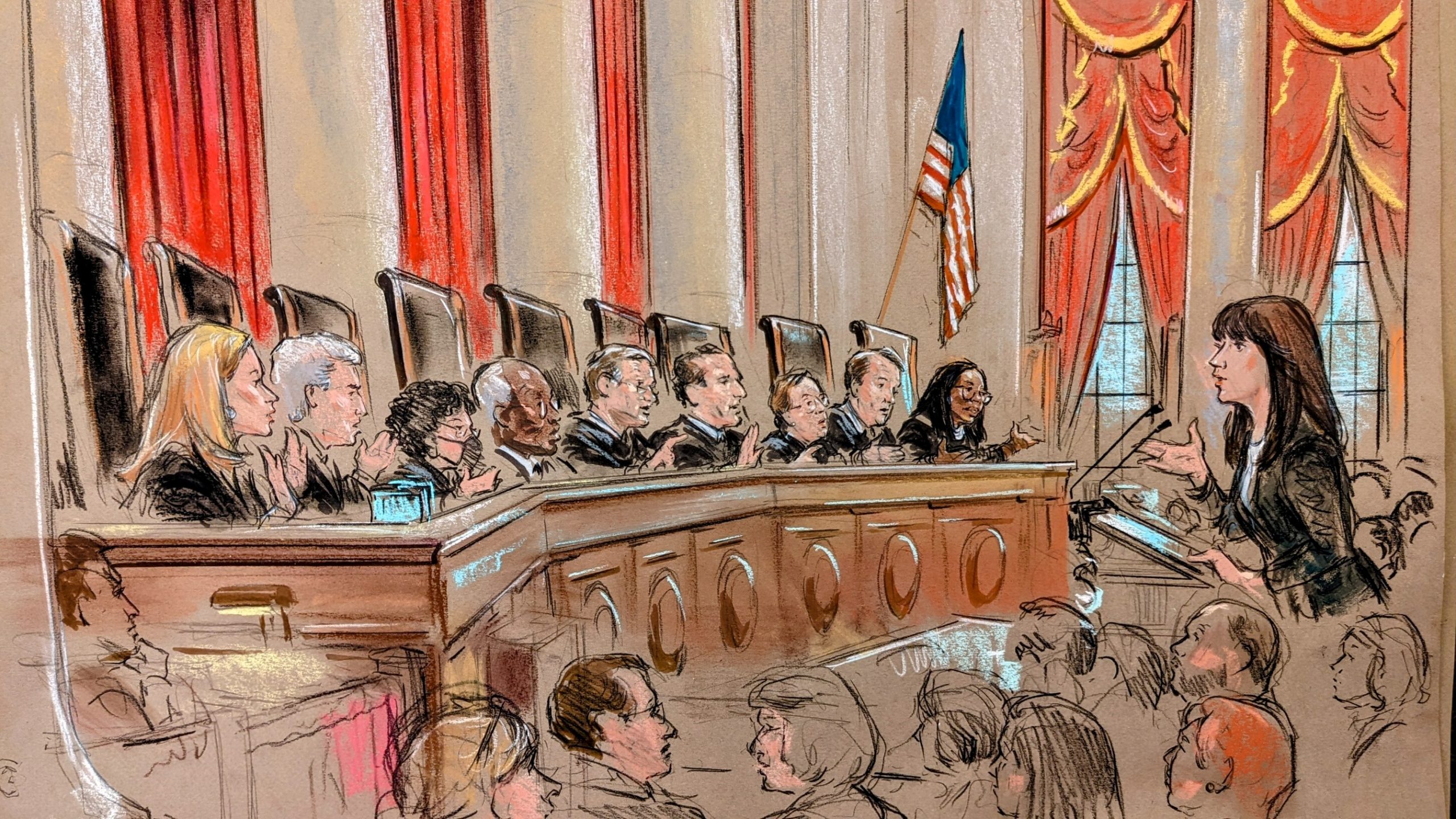(The Guardian) The US supreme court today wrestled with a partisan-tinged dispute over a Biden administration policy that would prioritize deportation of people in the country illegally who pose the greatest public safety risk, the Associated Press writes.
It was not clear after arguments that stretched past two hours and turned highly contentious at times whether the justices would allow the policy to take effect, or side with Republican-led states that have so far succeeded in blocking it.
At the center of the case is a September 2021 directive from the Department of Homeland Security that paused deportations unless individuals had committed acts of terrorism, espionage or “egregious threats to public safety”.
The guidance, issued after Joe Biden became president, updated a Trump-era policy that removed people in the country illegally regardless of criminal history or community ties.
Today, the administration’s top supreme court lawyer told the justices that federal law does “not create an unyielding mandate to apprehend and remove” every one of the more than 11 million immigrants living in the country illegally. Solicitor General Elizabeth Prelogar said it would be “incredibly destabilizing on the ground” for the high court to require that.
Congress has not given DHS enough money to vastly increase the number of people it holds and deports, the Biden administration has said. But Texas Solicitor General Judd Stone told the court that the administration violated federal law requiring the detention of people who are in the US illegally and who have been convicted of serious crimes.
Chief Justice John Roberts was among the conservative justices who pushed back strongly on the Biden administration’s arguments. -- It’s our job to say what the law is, not whether or not it can be possibly implemented or whether there are difficulties there, and I don’t think we should change that responsibility just because Congress and the executive can’t agree on something ... I don’t think we should let them off the hook,” he said.
Yet Roberts, in questioning Stone, also called Prelogar’s argument compelling. Justice Sonia Sotomayor and Elena Kagan, made clear they believed that Texas and Louisiana, which joined Texas in suing over the directive, weren’t even entitled to bring their case.

 www.scotusblog.com
www.scotusblog.com
It was not clear after arguments that stretched past two hours and turned highly contentious at times whether the justices would allow the policy to take effect, or side with Republican-led states that have so far succeeded in blocking it.
At the center of the case is a September 2021 directive from the Department of Homeland Security that paused deportations unless individuals had committed acts of terrorism, espionage or “egregious threats to public safety”.
The guidance, issued after Joe Biden became president, updated a Trump-era policy that removed people in the country illegally regardless of criminal history or community ties.
Today, the administration’s top supreme court lawyer told the justices that federal law does “not create an unyielding mandate to apprehend and remove” every one of the more than 11 million immigrants living in the country illegally. Solicitor General Elizabeth Prelogar said it would be “incredibly destabilizing on the ground” for the high court to require that.
Congress has not given DHS enough money to vastly increase the number of people it holds and deports, the Biden administration has said. But Texas Solicitor General Judd Stone told the court that the administration violated federal law requiring the detention of people who are in the US illegally and who have been convicted of serious crimes.
Chief Justice John Roberts was among the conservative justices who pushed back strongly on the Biden administration’s arguments. -- It’s our job to say what the law is, not whether or not it can be possibly implemented or whether there are difficulties there, and I don’t think we should change that responsibility just because Congress and the executive can’t agree on something ... I don’t think we should let them off the hook,” he said.
Yet Roberts, in questioning Stone, also called Prelogar’s argument compelling. Justice Sonia Sotomayor and Elena Kagan, made clear they believed that Texas and Louisiana, which joined Texas in suing over the directive, weren’t even entitled to bring their case.

Justices delve into a trio of thorny issues in states’ challenge to federal immigration policy - SCOTUSblog
The Supreme Court heard oral argument on Tuesday in a challenge to a Biden administration policy that prioritizes certain groups of unauthorized immigrants for arrest and deportation. Although some justices questioned the legality of the policy, there were also questions about whether the states cha
